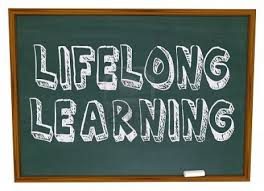10th July 2014: Participation, Motivation and Adult Learning… by Ellen Boeren
Come along to The Counting House at 7pm to listen to Ellen’s talk. Share a crust of bread, and hear the reflections he has to share…
Table of Contents
Title of talk:
Participation, motivation and adult learning: similarities and differences across Europe.
By Ellen Boeren

Bullet points of what you would like to talk about:
- Participation in adult learning activities is unequal as highly educated adults from stronger socio-economic backgrounds tend to participate more.
- Although this is true across Europe, Scandinavian countries score higher in participation rankings than Southern European countries, and Western countries rank higher than Eastern European countries.
- Participation is the result of an underlying decision-making process, in which the adult needs to formulate an intention to participate, and to come to a match with an appropriate educational supplier who is able to fill in the educational need.
- Adult learners in Eastern European countries participate more because of vocationally-oriented reasons while those in Western Europe participate more because of leisure- oriented reasons.
- Once adult learners enrol in adult learning activities, the classroom environment and interactions with fellow learners and the adult educator makes them motivated to get on with the course, this is true across Europe.
A few paragraphs on your subject:
Adult learning participation is an interesting topic as it merges insights from various disciplines such as sociology, psychology, economics and political sciences. The study of participation tended to be conducted from a rather psychological perspective, while recently more attention has been paid to the sociological side, and more specifically the social inequalities and class structures that remain visible within among adult learning participants. Currently, the field moves towards a stronger integrated subject. Although the European Union wants to achieve a participation rate of 15 percent among those aged 25-64 by the end of 2020, it is clear that many European countries are likely to fail this target and that wide inequalities between countries exist.
The presentation will draw on empirical findings gathered during the LLL2010 project, which took place from 2005-2011. Thirteen European countries/regions took part in the study and final results are published in two distinct books: Lifelong Learning in Europe, subtitle book 1: Equity and efficiency in the balance, subtitle book 2:national patterns and challenges.
A few paragraphs about you:
Dr Ellen Boeren is Chancellor’s Fellow (tenure track) at Moray House School of Education at the University of Edinburgh. She moved to Scotland in May 2012. Raised and educated in Flanders, Ellen obtained her PhD at the University of Leuven in May 2011. Her thesis entitled ‘Participation in adult education: a bounded agency approach’ focused on the explanation of participation and motivation of adult learners and was empirically build on the European LLL2010 project.
Currently, as a Chancellor’s Fellow, she teacher research methods in the MSc programmes at Moray House and conducts secondary data analyses on a wide range of databases measuring lifelong learning participation. Furthermore, she co-ordinates the School’s early career research network, together with Deborah Fry, and conducts research around career identities of early career researchers and PhD students.
Ellen published in various international journals, contributed to the internationally published LLL2010 books and participated in adult learning conferences at the European level.
What free internet knowledge resources would you recommend to others if they wish to explore your chosen theme further?
For those who want to consult some reports on the topic of adult education, I would recommend looking around at NIACE’s website:
www.niace.org.uk
For those interested in playing around with lifelong learning statistics, I would recommend Eurostat’s website on Education & Training statistics:
epp.eurostat.ec.europa.eu/portal/page/portal/education/introduction
For those interested in concepts of lifelong learning, I can recommend Infed.org. This website has an encyclopaedia and contains other relevant info on lifelong learning:
infed.org
What are your weblinks?
Website – www.ellenboeren.co.uk
Twitter – @ellen_boeren
Public Email – [email protected]
